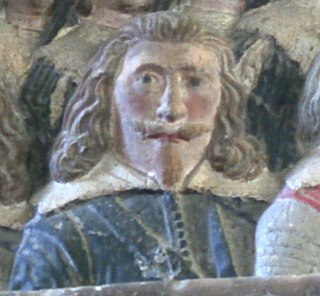
William Strode was an English politician who sat in the House of Commons variously between 1624 and 1645. He was one of the Five Members whose impeachment and attempted unconstitutional arrest by King Charles I in the House of Commons in 1642 sparked the Civil War, during which he fought on the Parliamentarian side.
Barne is a surname. Notable people with the surname include:
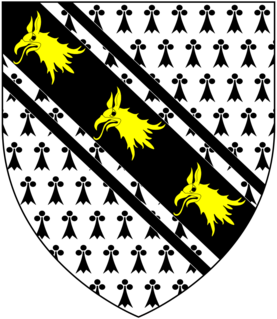
Sir Walter Yonge, 2nd Baronet of Great House, Colyton, and of Mohuns Ottery, both in Devon, was a Member of Parliament for Honiton (1659), for Lyme Regis (1660) and for Dartmouth (1667–70).
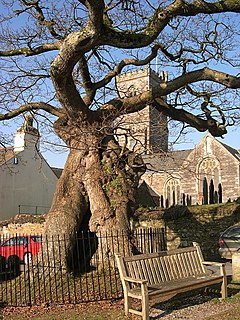
Meavy is a small village, civil parish and former manor in the English county of Devon. Meavy forms part of the district of West Devon. It lies a mile or so east of Yelverton. The River Meavy runs near the village. For administrative purposes the parish is grouped with the parishes of Sheepstor and Walkhampton to form Burrator Parish Council, and for electoral purposes it is grouped with the same two parishes to form Burrator Ward.

William Strode was an English poet, Doctor of Divinity and Public Orator of Oxford University, one of the Worthies of Devon of John Prince (d.1723).
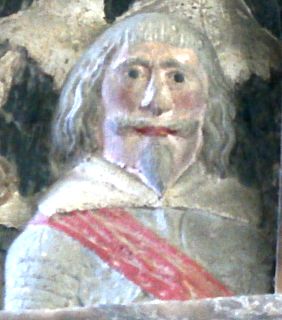
Sir Richard Strode of Newnham, Plympton St Mary, Devon and of Chalmington in Dorset, was a member of the Devonshire gentry who served as MP for Bere Alston in 1604, Bridport in 1626 and for Plympton Erle in 1640. He was by religion a puritan and towards the end of his life a baptist. During the Civil War he was a parliamentarian and raised a force of 3,000 dragoons.

Sir Francis Drake, 2nd Baronet of Buckland Abbey, Devon was an English politician who sat in the House of Commons variously between 1646 and 1662. He was a Colonel of the Horse, fighting in the Parliamentary army during the English Civil War.

Colonel William Strode, Jr — called William Strode of Barrington to distinguish him from contemporaries of the same name, principally the Strodes of Newnham in Devon — was an English Parliamentarian officer and Member of Parliament. A wealthy cloth merchant, he acquired several estates in his native county of Somerset and was noted for his local philanthropy as well as his political and military opposition to King Charles I and Charles II.

Sir William Strode of Newnham, Plympton St Mary, Devon, was a member of the Devonshire gentry and twice served as MP for his family's pocket borough of Plympton Erle, in 1660 and 1661–1676.
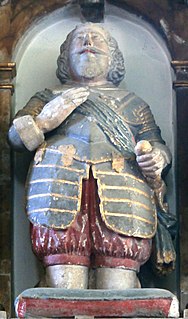
Sir William Strode (1562–1637) of Newnham in the parish of Plympton St Mary, Devon, England, was a member of the Devon landed gentry, a military engineer and seven times a Member of Parliament elected for Devon in 1597 and 1624, for Plympton Erle in 1601, 1604, 1621 and 1625, and for Plymouth in 1614. He was High Sheriff of Devon from 1593 to 1594 and was knighted in 1598. In 1599 he was appointed Deputy Lieutenant of Devon. There is a monument to him in the parish church of Plympton St Mary.

Sir John Davie, 1st Baronet (1588–1654) of Creedy in the parish of Sandford, near Crediton, Devon, was a member of the Devonshire gentry and served as Member of Parliament for Tiverton in 1621-2 and as Sheriff of Devon (1629–1630). He was created a baronet in 1641.
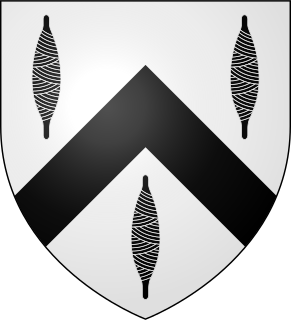
John Trefusis lord of the manor of Trefusis in the parish of Mylor in Cornwall, was an English politician who sat in the House of Commons from 1621 to 1622.
Joseph Maynard was an English politician who sat in the House of Commons from 1665 to 1679.

Sir John Davie, 2nd Baronet (1612–1678) of Creedy in the parish of Sandford, Devon, was Member of Parliament for Tavistock, Devon, in 1661 and was Sheriff of Devon from 1670 to 1671.
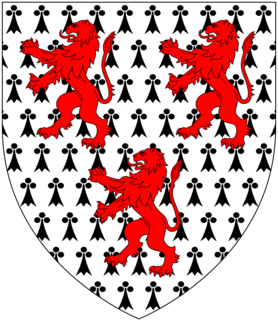
Sir John Chudleigh was an English politician who sat in the House of Commons in 1626.

William Strode III was a wealthy English landowner, Member of Parliament, and aider of the Duke of Monmouth in the Monmouth Rebellion (1685).

Newnham in the parish of Plympton St Mary in Devon is a historic estate long held by the Devonshire gentry family of Strode. The ancient mansion house is situated 1 mile north-east of St Mary's Church, beside the Smallhanger Brook, a tributary of the Tory Brook, itself flowing into the River Plym. The house was abandoned by the Strode family in about 1700 when they built a new mansion on the site of Loughtor Manor House, about 1/3 mile to the north-east of Old Newnham.

Newnham Park is an historic estate in the civil parish of Sparkwell, Devon, UK. It was known as Loughtor until about 1700 when the ancient Strode family, long seated at Newnham, about 1 mile south-east of the manor house of Loughtor, abandoned Newnham and moved their residence to Loughtor where they built a new mansion house which they renamed "Newnham Park". In 2014 the mansion house with an estate of about 1,550 acres is still owned by a descendant of the Courtenay and Strode families which held the estate from the 15th century, and which were well established in the county of Devon long before that time. In 2014 part of the estate is operated as a commercial clay-pigeon shooting ground.
The Cromwell family is an English aristocratic family. Its most famous members are: Thomas Cromwell, 1st Earl of Essex, and Oliver Cromwell, the Lord Protector. The line of Oliver Cromwell descends from Richard Williams, son of Thomas Cromwell's sister Katherine and her husband Morgan Williams.

Richard Strode, of Newnham, in the parish of Plympton St Mary in Devon, was an English Member of Parliament for Plympton Erle in 1553 and 1559. He later served as escheator for Devon and Cornwall from 1565–1566.














